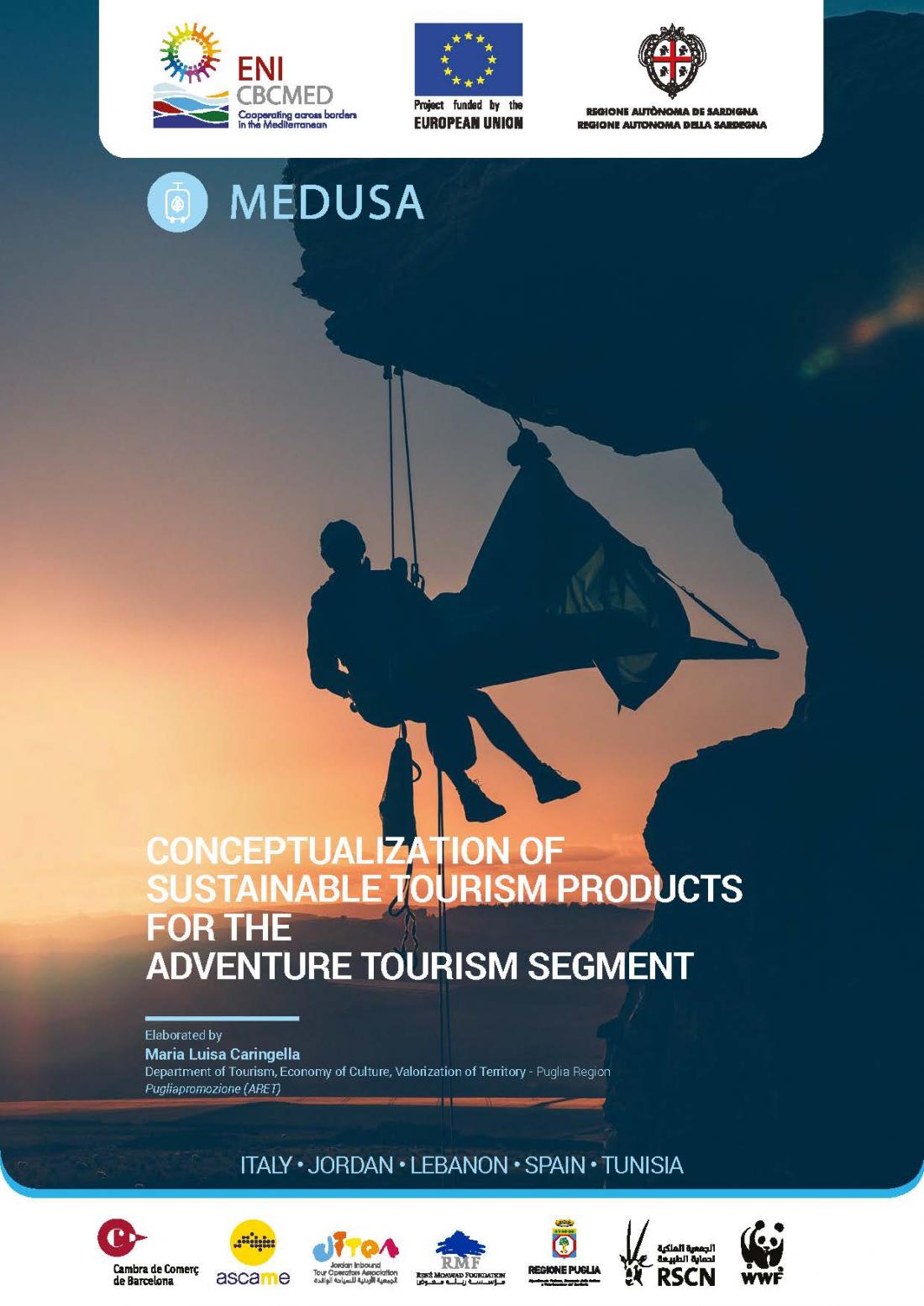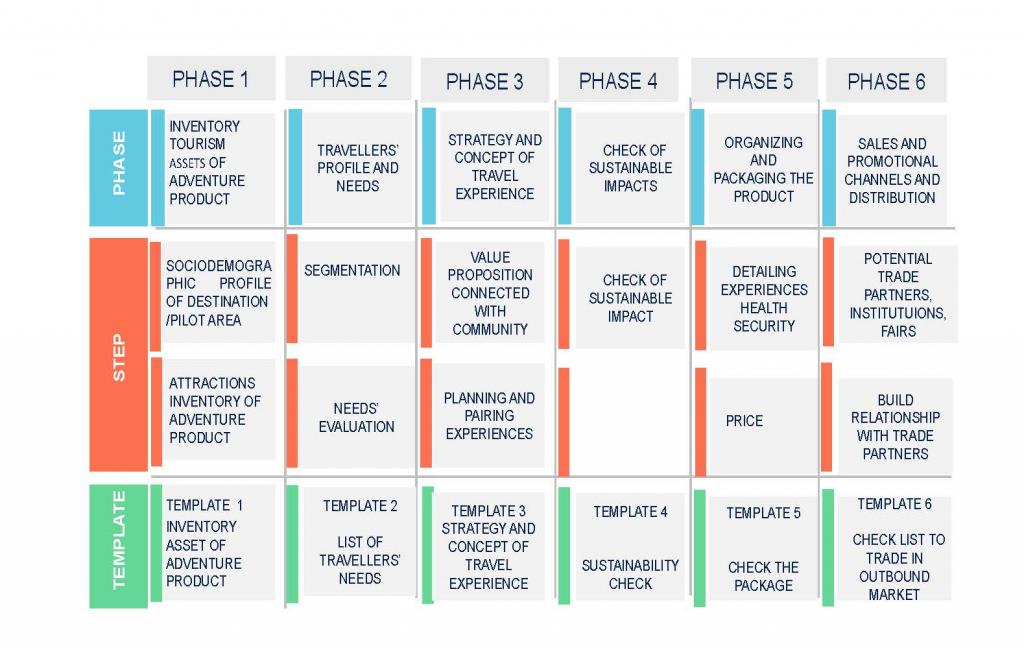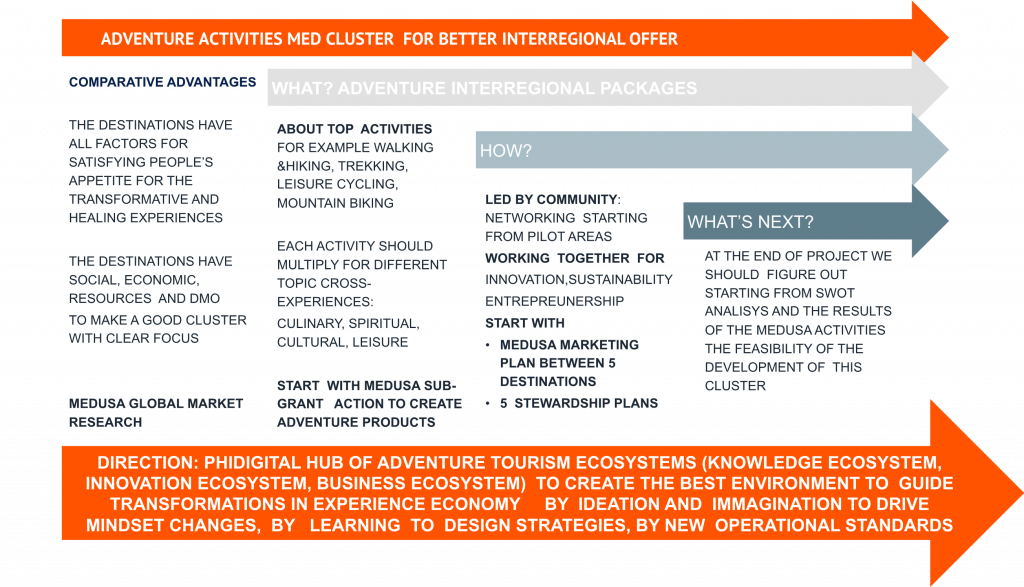MEDUSA: Conceptualization of Sustainable Tourism segment

The Medusa Conceptualization of Sustainable Tourism segment wraps up the Global Market Research & Analysis Report on Adventure Tourism in the Mediterranean’s findings and offers a set of guidelines and examples of how established international tour operators design tourism products and packages, illustrating the main requirements for success.
The Conceptualization report offers a holistic vision of the process of product development, helping to connect dots, ideas and tools.
This report develops the conceptualization of adventure travel through 6 phases:
- PHASE 1 – Inventory of tourism assets for the adventure product
- PHASE 2 – Travelers’ profiles and needs
- PHASE 3 – Strategy and concept of experience
- PHASE 4 – Sustainable impacts check
- PHASE 5 – Organizing and packaging the product
- PHASE 6 – Sales, promotional channel, and distribution
Each phase is divided into two steps and concludes with information collected within the framework of predetermined a template for ending the phase.
 Figure 1 Structure of Medusa Conceptualization of adventure product
Figure 1 Structure of Medusa Conceptualization of adventure product
The report is a tool for accelerating the process of learning from global research and it impulses users to adopt them during the implementation of their operational tasks and choose the best practices to transform into an effective model. The structure of research behind the conceptualization report is found below.
 Figure 2 Structure of Medusa Global Market Research
Figure 2 Structure of Medusa Global Market Research
This report is intended to be used, for instance, in co-creation workshops for sharing experiences and the ideas, helping the criss-cross of the contents. Learning together is the best way to innovate the design of touristic experiences.
Regarding the content, the conceptualization report reflects the strategic role that sustainability plays in MEDUSA project’s design of adventure travel experiences. Without it, adventure tourism could easily become another form of mass tourism.
With the COVID-19 pandemic, it has been strengthening the idea that adventure tourism should be a meaningful and impactful force, for the economy and for the society.
In fact, due to the pandemic, it is time to reflect on what is the purpose of tourism and what does it mean for a community.
In MEDUSA’s conceptualization study, sustainability starts at strategic level, with the Phase 3, “Value proposition connected with community,” inspired by the best sustainable adventure tourism practices collected by the benchmarking study. It means striking a balance between the interests of different partners in each place, starting from a rexamination of the concept of quality and the values of communities, as well as rethinking how best to connect people through values and create meaningful connections with the community. Not more but better.
The emphasis placed on sustainability in phase 3, phase 4 and phase 5 reflects the changing hierarchy of needs we need to consider when designing all forms of travel experiences. Global research and the conceptualization report are the first steps that the MEDUSA project has taken to promote the right tourism model and turn sustainable adventure tourism into an economic driving force, through the development of enhanced holistic offers for adventure products, as explained in the report’s conclusion.
 Figure 3 Logical framework of Medusa activities
Figure 3 Logical framework of Medusa activities









